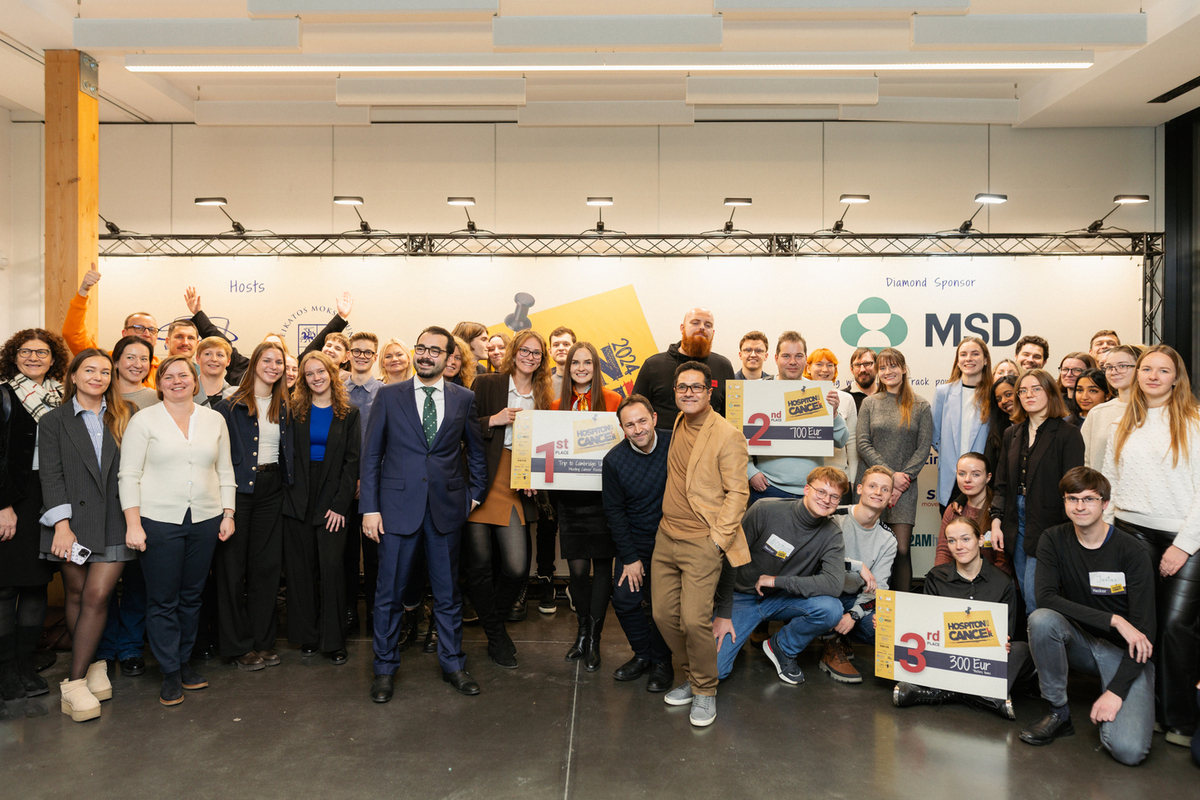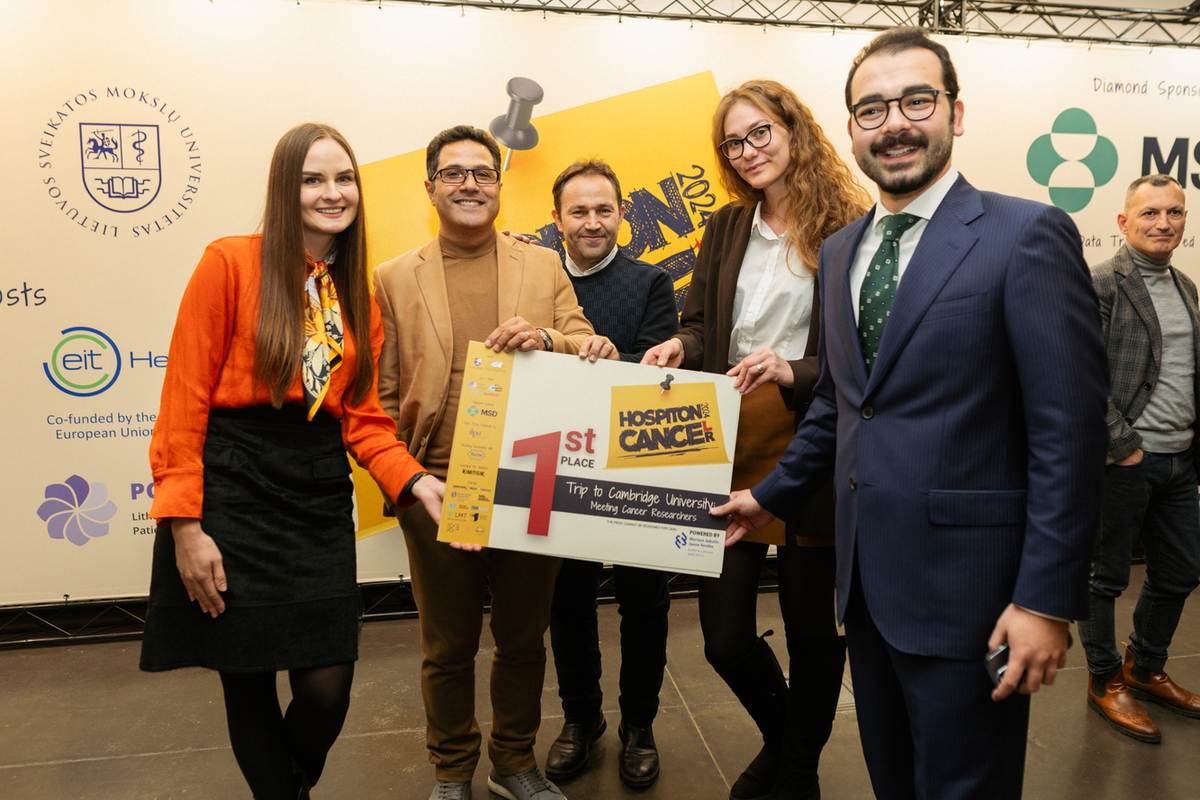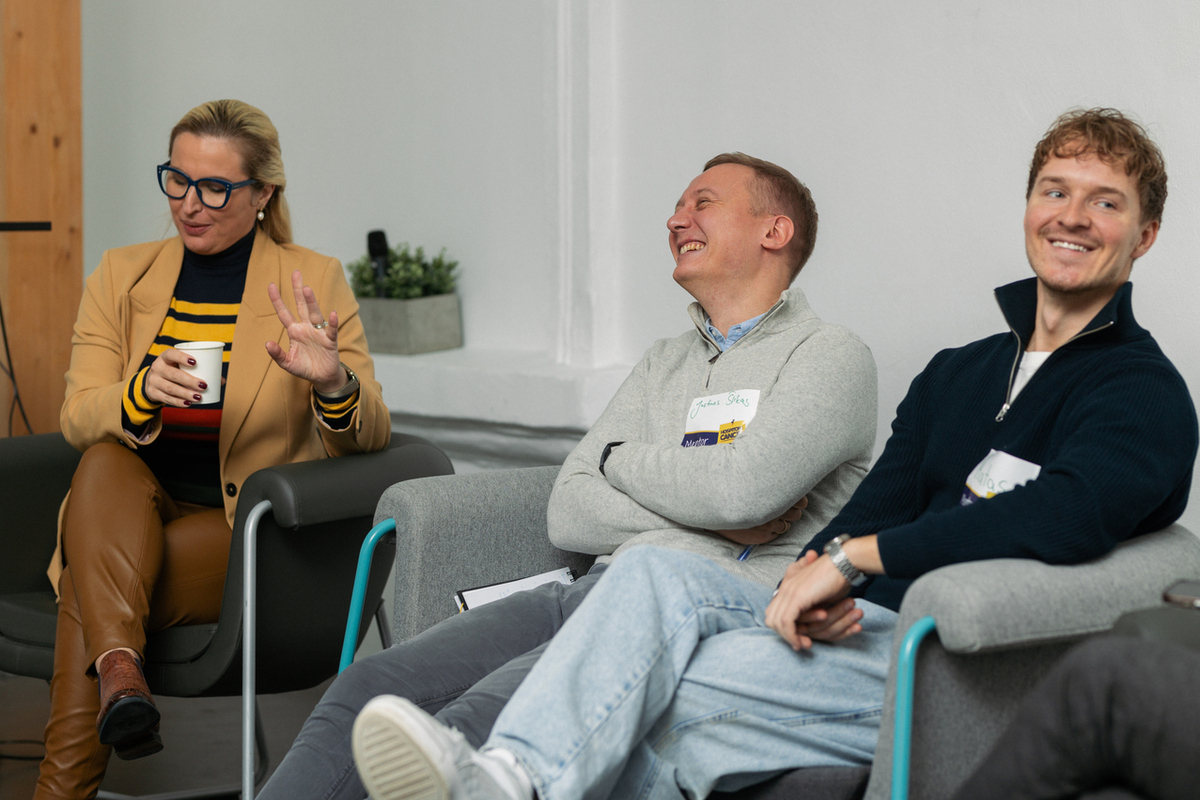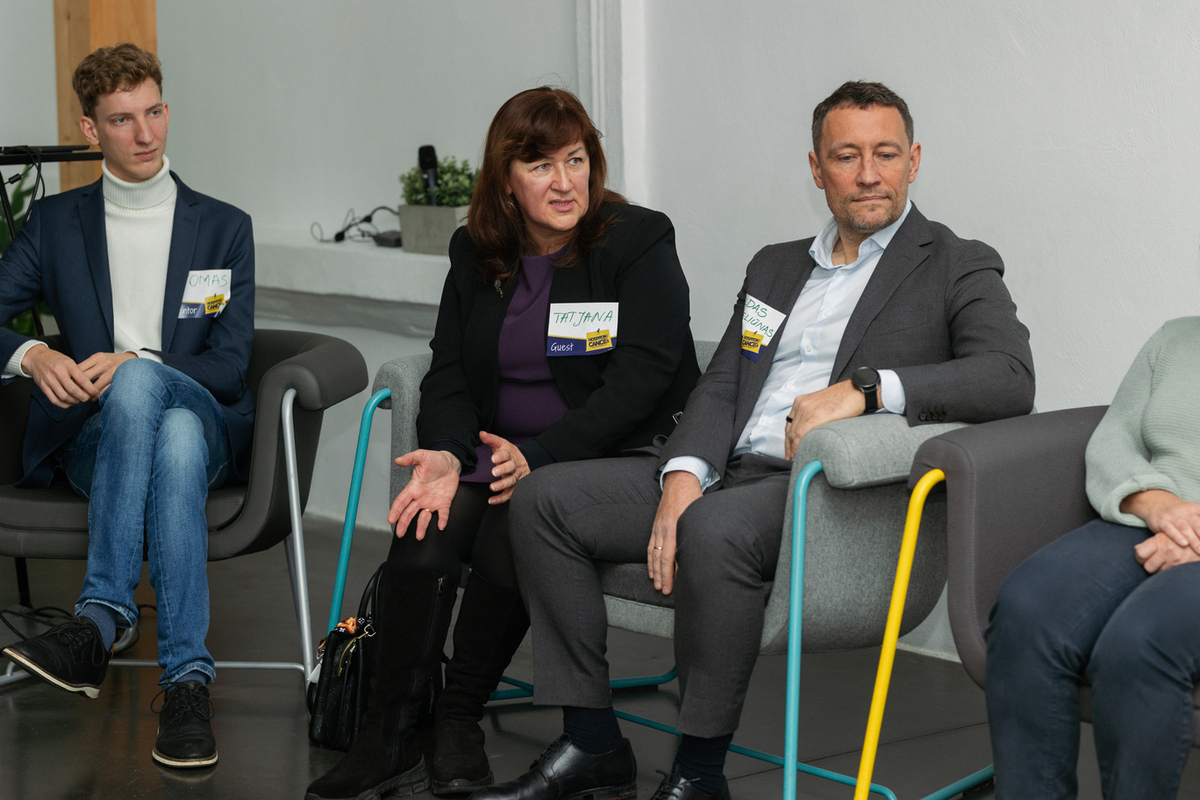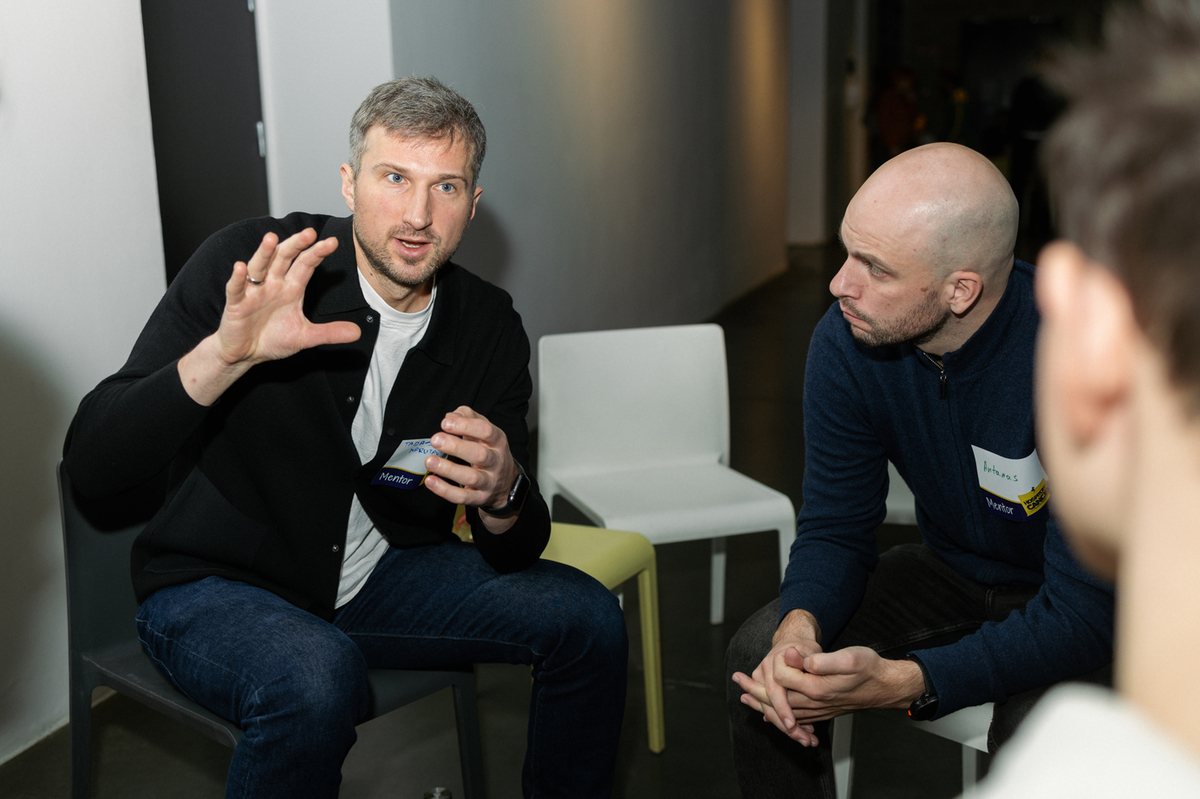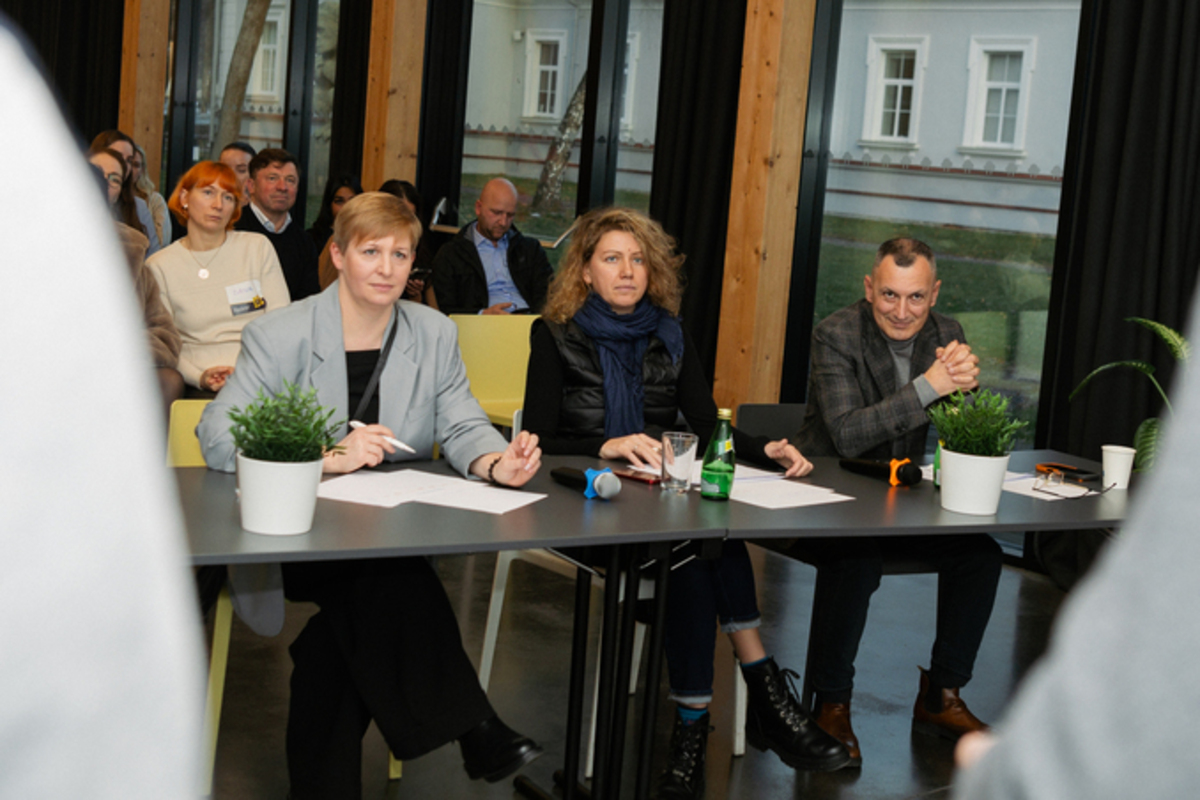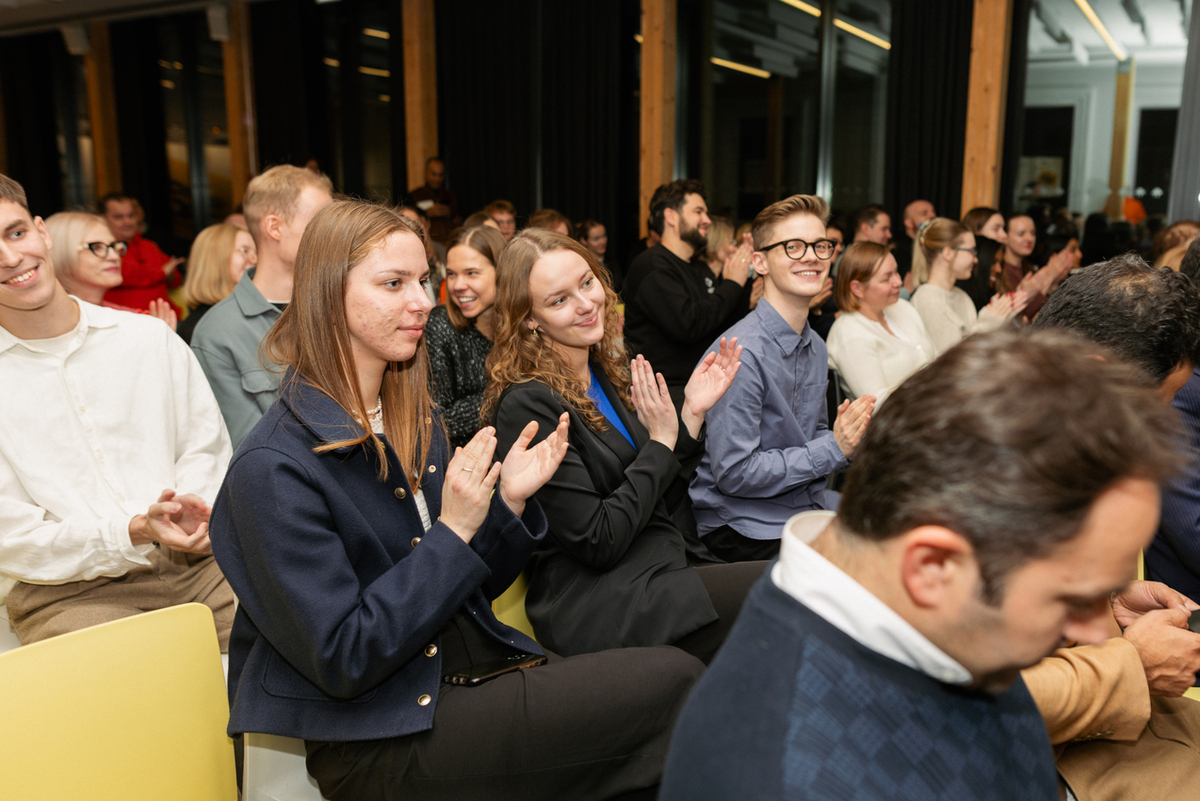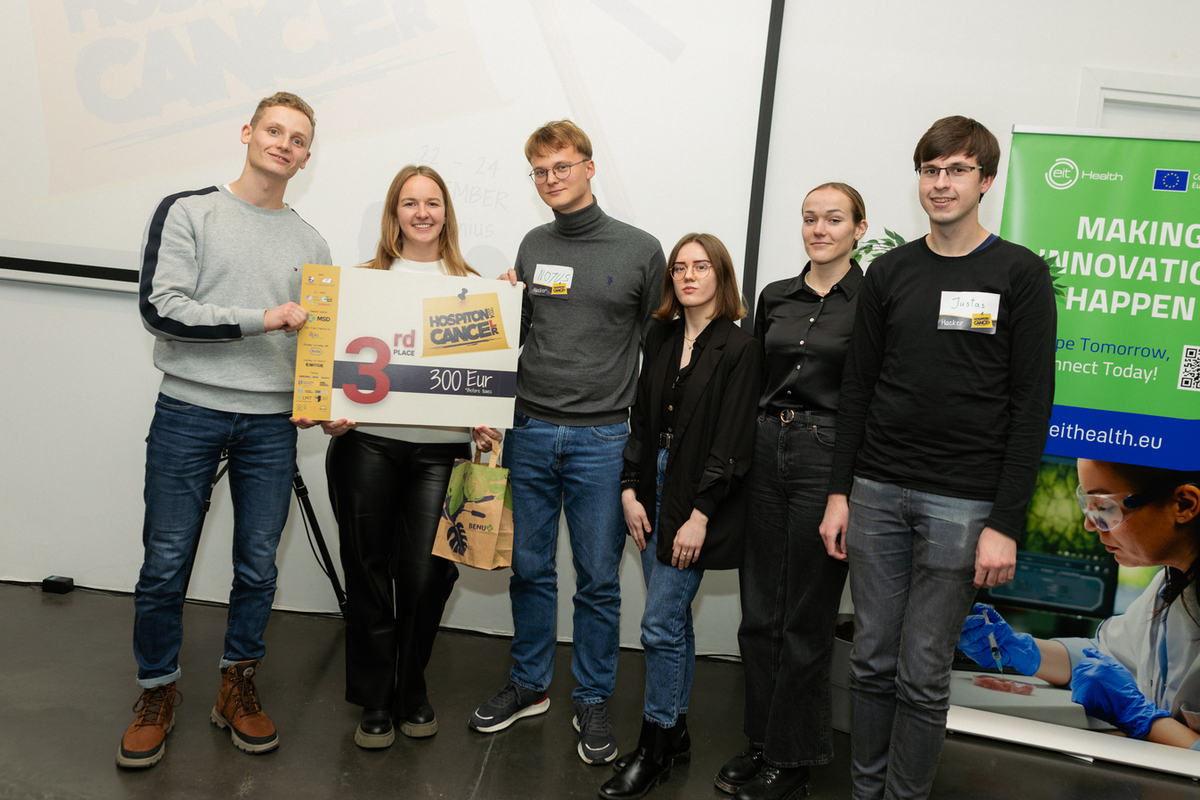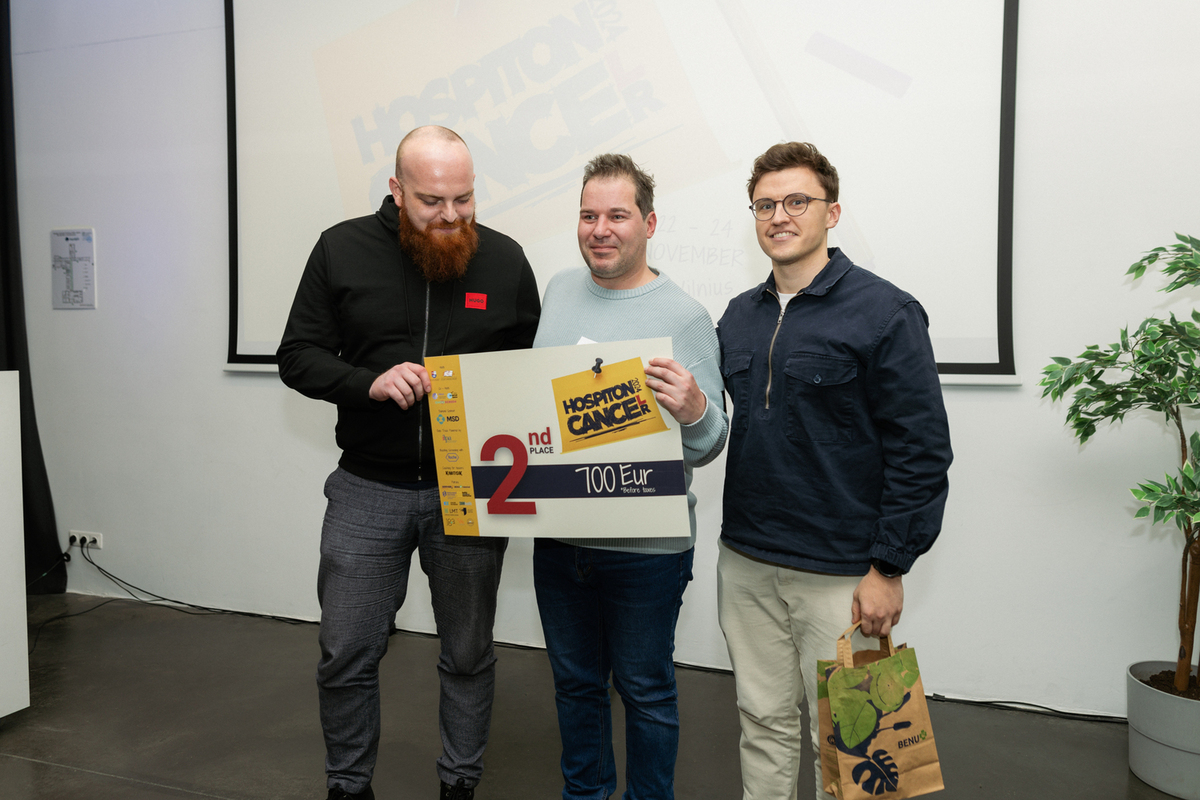Rapid Tests for Cancer Detection: Bold Ideas Transforming Systems and Driving Progress
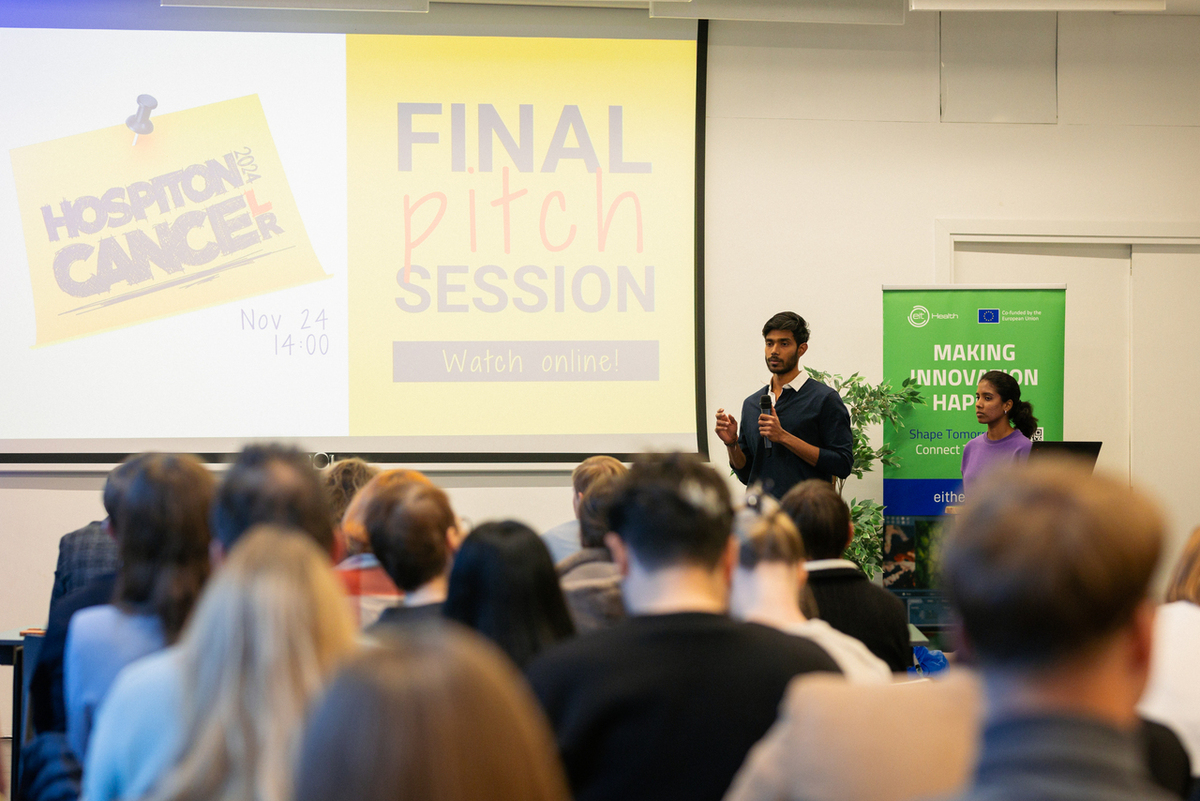
The sixth health hackathon, Cancel Cancer, recently held in Vilnius, brought together over 100 participants from diverse professional fields. Over the weekend, 13 teams collaborated with mentors and patients to put forward solutions encouraging greater public participation in oncological screening programmes. The concept of rapid HPV tests was among the innovative ideas presented – but what are its potential benefits?
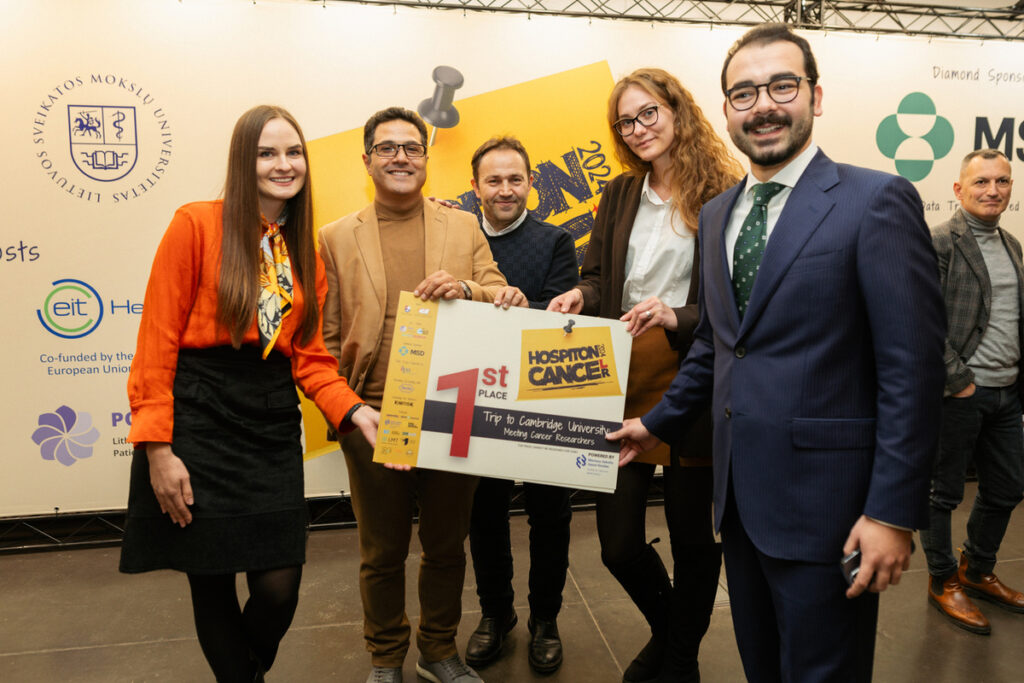
The hackathon winners, team Cervixel (Muhammad Javad Muhammadi, Hamid Gharehbaghi, Saeed Kaboli, Gabija Medvedevaitė, and Justina Znotinaitė) combined their experience and skills in medicine, biotechnology, data science, and medical devices and won the top prize: a trip to the University of Cambridge funded by the Marius Jakulis Jason Foundation. This trip will enable the team to meet cancer researchers, gain valuable knowledge and insights, and receive guidance to further develop their project.
The team’s start-up offers a groundbreaking solution – a self-administered HPV test based on CRISPR technology – with the aim to address complex diagnostic challenges. This is a highly effective gene-editing tool has been adapted as a diagnostic test to detect human papillomavirus (HPV), which can cause cervical cancer. According to team representative Justina Znotinaitė, the CRISPR-based test is characterised by high specificity and sensitivity, ensuring accurate detection of all high-risk HPV genotypes with minimal risk of false results. Moreover, the innovation holds particular promise for individuals in remote areas who lack access to healthcare facilities, those facing long waits for specialist appointments, or people hesitant to seek HPV testing due to fear or stigma. Additionally, the test could benefit not only women but also men, for whom HPV testing is not widely available. Early adoption of this method could prevent HPV-induced cancers, especially those linked to high-risk virus types, thereby saving lives. By making testing more accessible, precise, and inclusive, this initiative represents a significant step in strengthening cancer prevention.
“We spent a significant amount of time refining our understanding of the issue. Initially, our perceptions of the situation in Lithuania, Europe, and globally differed. After analysing the data, we decided to include men as a new target group. Men often show no symptoms of HPV, yet they are carriers and at risk of developing certain cancers. The goal of this project research is to make sure that men can also benefit from this test and detect risks early,” shared J.Znotinaitė.
The team plans to continue developing their idea, hoping the solution will enhance the accessibility of HPV testing by reducing the need for visits to healthcare facilities. The rapid self-test could serve as a valuable alternative, particularly for individuals struggling to secure timely medical appointments or living in remote areas. The ultimate aim is to create a test capable of detecting all high-risk HPV genotypes. A positive test result would signal the need for thorough medical evaluation, encouraging proactive health management.
A Unifying Mission
Inga Kanapeckienė, project manager at LSMU Health Innovation Development Centre and co-organiser of the Hospiton. Cancel Cancer hackathon, highlighted the winners’ idea as an inspiring example of how a pressing societal issue can unite experts across various fields. “Multidisciplinary teams demonstrated professionalism and deep understanding of the problem. Diverse competencies and expertise are key to creating innovative, practical solutions. What’s even more inspiring is the involvement of the broader community, including patients, pharmaceutical, IT, and communications professionals. This solidarity and pro-active approach show that these issues matter to everyone, not just healthcare specialists or authorities. The continued development of ideas originating from hackathons proves that such events are more than just creative spaces – they are launching pads for long-term solutions with real impact,” noted I. Kanapeckienė.
From Hospiton Lithuania to the U.S. Market within Two Years
Ideas born in hackathons are gaining international attention. This year’s hackathon host, a participant in 2022, now presents their innovations to the U.S. investment market. “Last year’s participants, who formed Diawiser, were selected from over 300 candidates to collaborate with a major U.S. pharmaceutical company. They were among nine chosen to further develop their product,” shared I. Kanapeckienė.
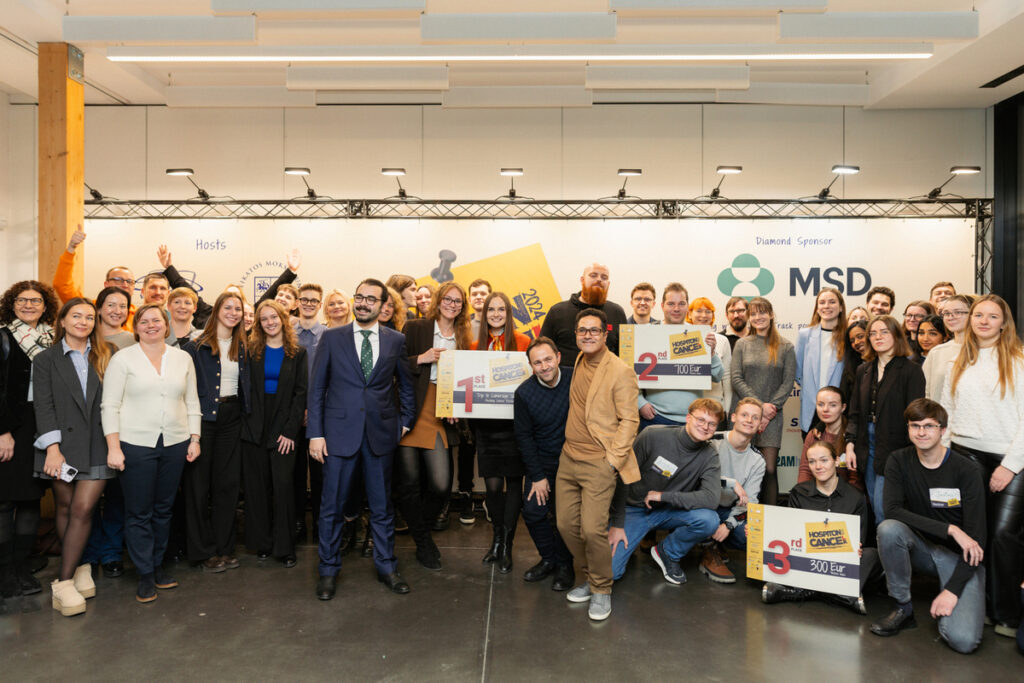
Armen Manukian, head of MSD, a pharmaceutical company in the Baltic countries, sees the hackathon format as a role model of efficiency that businesses could look up to. “Hackathons create an environment that fosters rapid collaboration and idea development. Watching teams evolve from uncertainty to significant progress within days is impressive. In business, such developments take far longer.” Manukian encouraged participants to keep developing their ideas, even if those do not immediately gain recognition. According to the head of MSD, these events are excellent platforms to test and refine ideas from multiple perspectives.
An international company team, which developed an action plan to implement their proposed idea, participated in the Hospiton 2024 as well.
For future hackathon participants, A. Manukian advises not to shy away from simplicity – the winning ideas are often those that have seemingly been obvious all along but somehow remained unnoticed. He also emphasises the importance of communication, noting that without a doubt, success comes to those who can present complex solutions in a straightforward manner.
The Hospiton is an initiative that attracts a wide audience – from students to professionals –with an interest in the health sector and the desire to address real challenges in this field.

